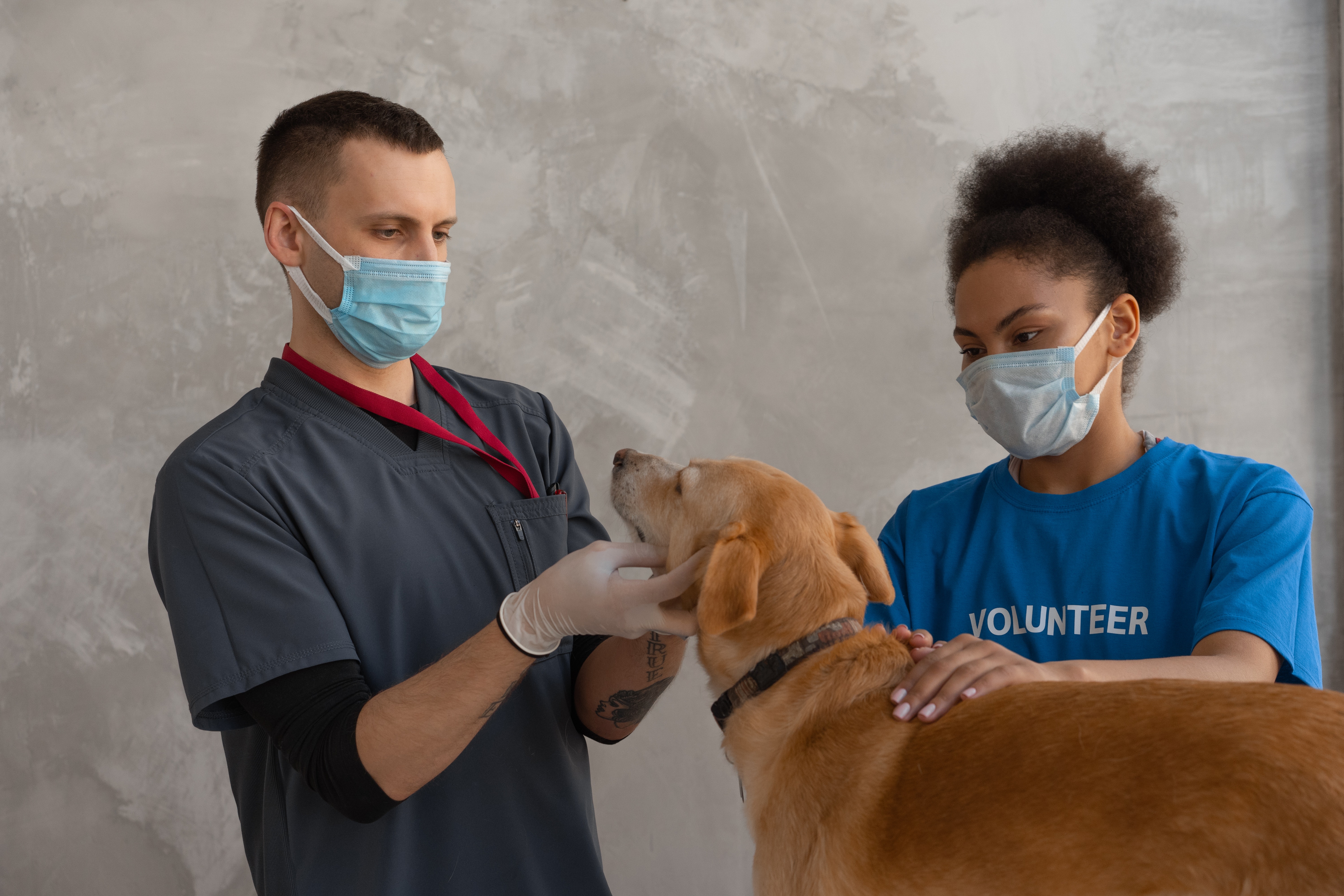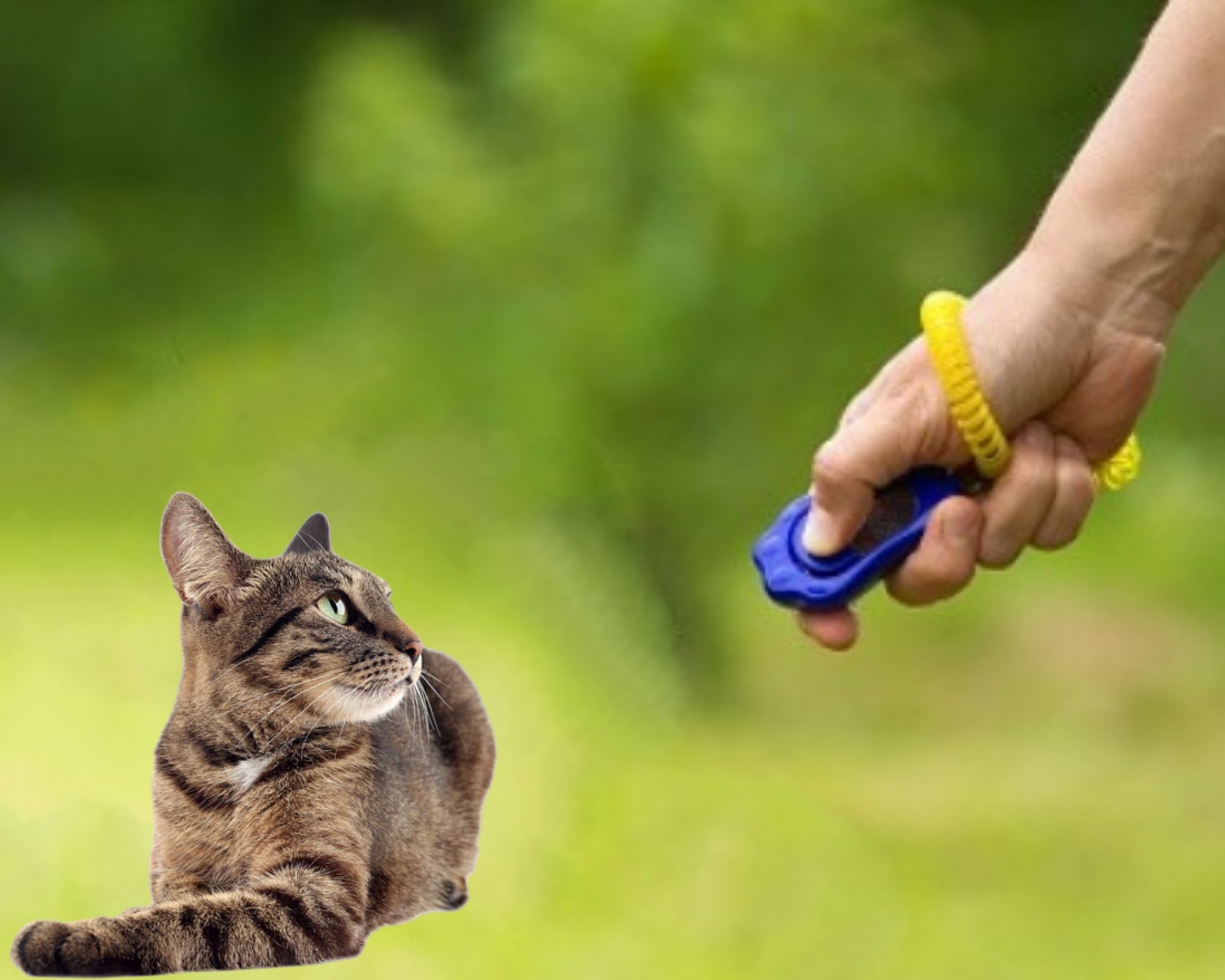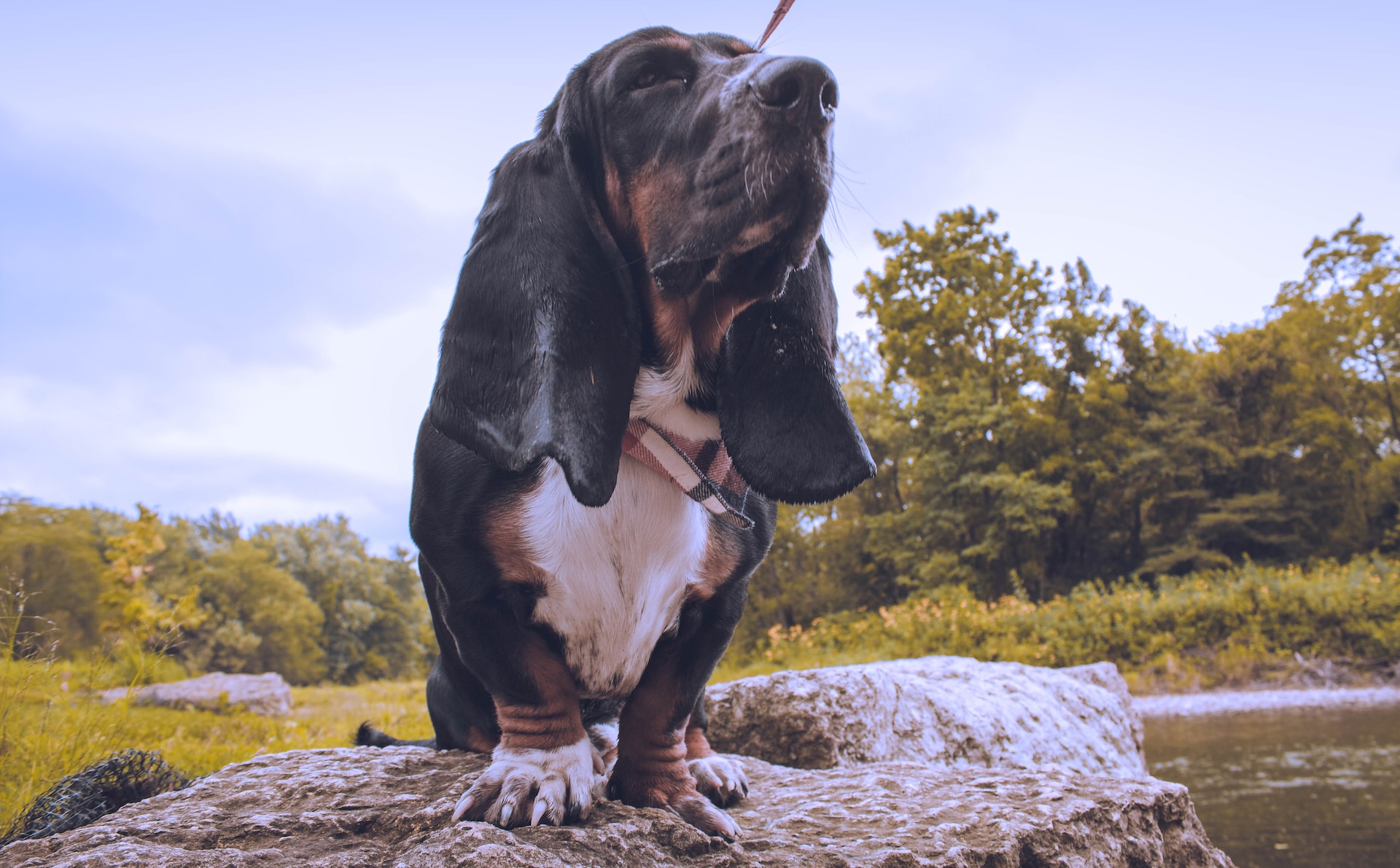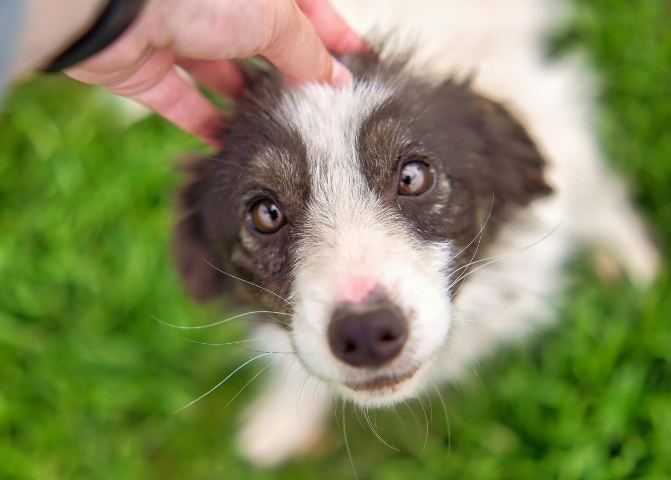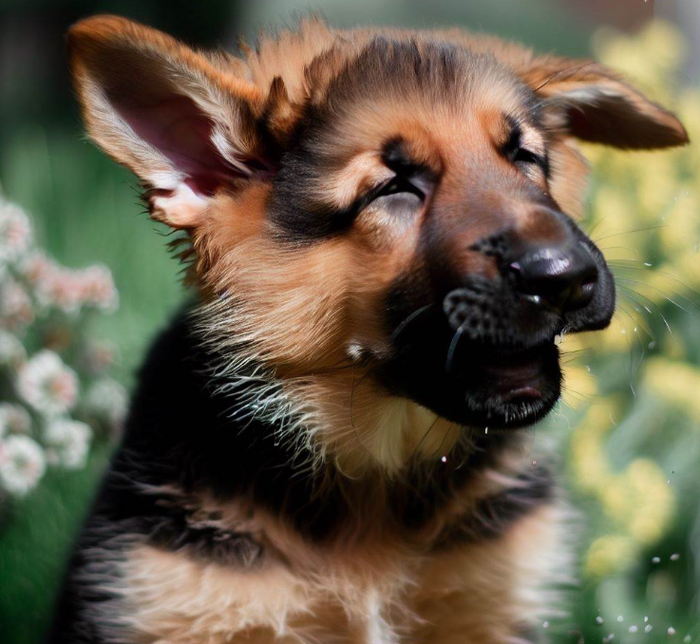
How many things do dogs and humans have in common? Apparently, a lot! Our similarities are not only related to our anatomy, since we both have the same organs, like the heart, brain, stomach, liver, lungs...etc., but also to our emotions and physiological mechanisms. You may wonder what we meant by “physiological mechanisms”... Let’s take “sneezing” as an example.
Both humans and dogs sneeze, as sneezing is a normal mechanism of our body to protect the nasal mucosal against irritation, which can be caused by various factors. Sneezing in humans occurs occasionally, especially during spring, summer, and early fall when certain plants pollinate. We are used to it and do not pay much attention to it unless it is excessive and requires medication like nasal drops or spray.
Is sneezing in dogs just as natural and harmless as it is in humans? Today we will talk about sneezing in our paw friends, its causes, and if there is something to worry about.
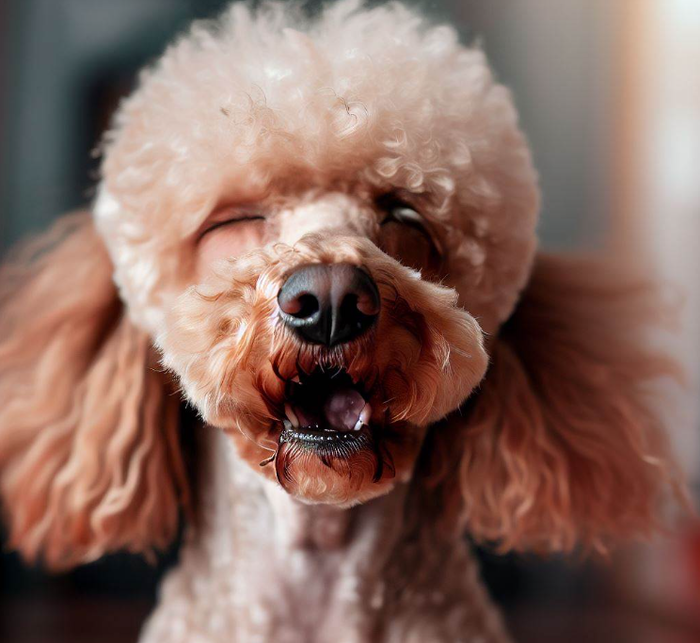
Seasonal Allergies
Seasonal allergies are typically caused by pollen, especially during spring, summer, and early fall. It can lead to excessive sneezing in our paw friends (just like in us). Symptoms of seasonal allergies are
Nasal Discharge
You may have noticed that dogs typically have wet noses. If you are interested in learning why this is common in dogs, you can read our article “Why Do Dogs Have Wet Noses”. However, having a runny nose, means that your paw friend may have gotten a cold or maybe he/she is allergic to pollen.
Congestion
When the produced mucus is too much, the nasal area of the respiratory system gets overloaded. This process is known as congestion, and it can occur in both humans and dogs.
Teary Eyes
If you notice that your paw friend’s eyes are tearing and are wetter than normal, this could be a symptom of a seasonal allergy.
Ear Infections
Dirty ears with an unpleasant odor and ear infections can also be a symptom of a seasonal allergy. If you are not sure what the cause of sneezing is, you may want to check your dog’s ears as well.
Itchy Skin
If your paw friend enjoys playing outside and rolling in the grass, his/her skin may become itchy if pollen gets stuck to it.
Fur Loss / Skin Wounds
Due to constant scratching on a certain area of the skin, dogs may get wounds on the skin and lose their fur in that area. The so-called “hot spots” may occur, which are the body areas that have been licked and scratched by the dog.
Coughing
A dry cough is also likely to be a symptom, accompanying a seasonal allergy.
What Should You Do?
Based on the allergen, different symptoms may occur. However, it is important that you consult your veterinarian immediately, especially if your dog has difficulty breathing. Your paw friend is likely to be provided with an allergy shot and antihistamine. Allergy tests may also be run.
You should keep in mind, that you should not give your dog medication on your own, prior to contacting a veterinarian. Firstly, you can not be absolutely sure what the cause of sneezing is; secondly, you do not know what dose to give your dog.
Environmental Allergies
Environmental allergies can be caused by dander, mold, dust, pollen...etc. Our dogs can be affected by allergens in their surroundings both at home and outdoors. Most of the symptoms of an environmental allergy are similar to those of a seasonal allergy, but additional ones may also occur:
- Itchy skin;
- Nasal discharge;
- Watery eyes;
- Coughing;
- Skin wounds (due to constant scratching);
- Fur loss;
- Vomiting;
- Diarrhea;
- Gastrointestinal issues;
- Swelling
- Collapse
These types of allergies can be caused by various factors in the surroundings, including food, medication, vaccines, fleas...etc.
What Should You Do?
Depending on the severity of the symptoms, the problem may be resolved by removing the allergen, i.e. if your dog is allergic to a certain odor, food, or object at home, you can just remove it (once you determine what it is). If the allergen is outdoors, you should consider changing the walk route.
In case the symptoms are severe, you should consult a veterinarian immediately. As recommended above, you should not give your dog medication in your own estimation.
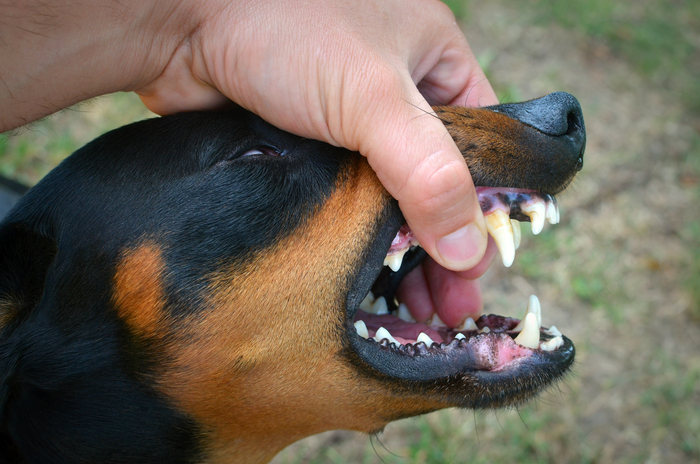
Foreign Object
Dogs navigate their surroundings primarily by using their noses. Through their excellent sense of smell, our paw friends explore the world, which means that all types of small objects can get into their noses. This mainly applies to very curious dogs, especially during the puppy phase.
In most cases, your paw friend is likely to be able to sneeze out the object themselves. If it has stuck on the surface, you may be able to remove it yourself. Besides sneezing, excessive pawing at the nose may be noticed as a symptom.
What Should You Do?
If you do not feel very confident in your skills to remove the object, the object is stuck too deep in the nasal cavity, and especially if there is blood during sneezing, you should call a veterinarian and arrange an appointment.
Nasal Mites
Although nasal mites are a rather rare cause of sneezing, they still affect your dog regardless of his/her age or breed. Nasal discharge, nose bleeding, pawing at the nose, sneezing, and itchy skin in the face area are among the symptoms of nasal mites in dogs.
What Should You Do?
You should contact a veterinarian, so they confirm the presence of these parasites. Proper treatment including medication will be prescribed. Nasal endoscopy and/or nasal flushing may also be needed.
Infection
Nasal infections are common upper respiratory infections in dogs and sneezing is one of their typical symptoms. These infections can be both bacterial and fungal and are usually accompanied by sinusitis (inflammation of the sinuses). Coughing, bloody discharge, or discharge containing pus, and loss of appetite are among the symptoms of nasal infections.
What Should You Do?
You should take a close look at your dog and try to identify any changes in his/her normal behavior. If you notice any of the symptoms listed above, especially if they remain the same or worsen in the next 1–2 days, you should contact a veterinarian and arrange an appointment. It will be very helpful if you are able to explain to the veterinarian what symptoms your dog has.
Dental Issues
Some of you may ask: What is the relation between dental issues and sneezing? Serious dental conditions or even not-so-serious ones, that have been left untreated, e.g. infections, decayed teeth, or tumors in the mouth, can affect the sinuses, and lead to sneezing.
What Should You Do?
Dental hygiene is very important for your dog’s general well-being, so you should not neglect it. Brushing your paw friend’s teeth with toothpaste designed for dogs is recommended for maintaining his/her oral hygiene. In case this seems to be too difficult, you should regularly provide him/her with dental sticks.
You may want to take a look in your dog’s mouth in order to recognize any issues like rotting teeth, the strange coloration of the tongue or gums, lumps, wounds...or anything that may require a veterinarian check-up.
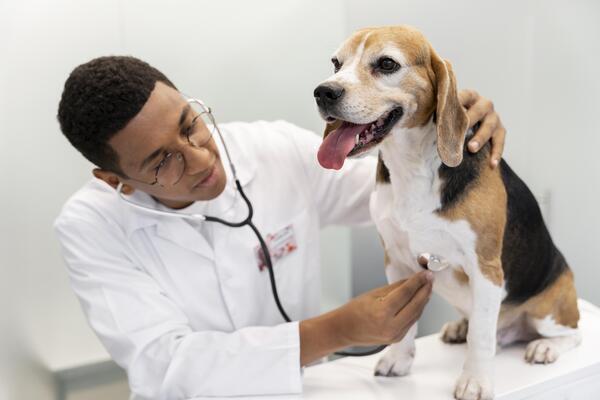
Tumors
Nasal tumors are not common health conditions in dogs. However, they still can not be excluded as a possible cause of sneezing. Nasal tumors mainly affect senior male dogs.
Breeds whose representatives have long and wide noses are more predisposed to nasal tumors than short-muzzled dogs. Blood in the nasal discharge and breathing issues are among the symptoms that accompany this health condition.
What Should You Do?
Consulting a veterinarian is absolutely mandatory in this case. Your paw friend may need to go through chemotherapy, based on his/her age, and the severity of the condition.
Reverse Sneezing
Paroxysmal respiration, which is also known as reverse sneezing, is a condition that describes the process of rapidly pulling air into the nose instead of pushing it out. Reverse sneezing is harmless in most cases and occurs occasionally. In some cases though, it can be a symptom of irritation or inflammation or even of the presence of a foreign object in the respiratory tract.
What Should You Do?
If it only happens occasionally, then you may not need to worry. If it occurs on a regular basis though, you should consult a veterinarian, so they confirm the cause of that condition.
Play Sneezing
Let’s end with a cause of sneezing that is pleasant and positive! Play sneezing is a common behavior in dogs, who invite their beloved human or a dog, whose company they enjoy, into a play session! Play sneezing is easily recognizable by the dog’s posture (stretched out front legs, while the dog is leaning down on his/her elbows), and happy disposition.
Sneezing in this case is likely to occur a few times only and then stop. In this situation, it is likely to be a type of communication tool which your dog uses to express his/her good intentions. In other words, though sneezing he/she is telling you that he/she wants to play and does not mean any harm.
What Should You Do?
The answer is simple-play with your paw friend! Of course, if the time is not suitable for that, you can provide your doggie with toys instead, so he/she spends his/her energy and remain physically and mentally fit.




